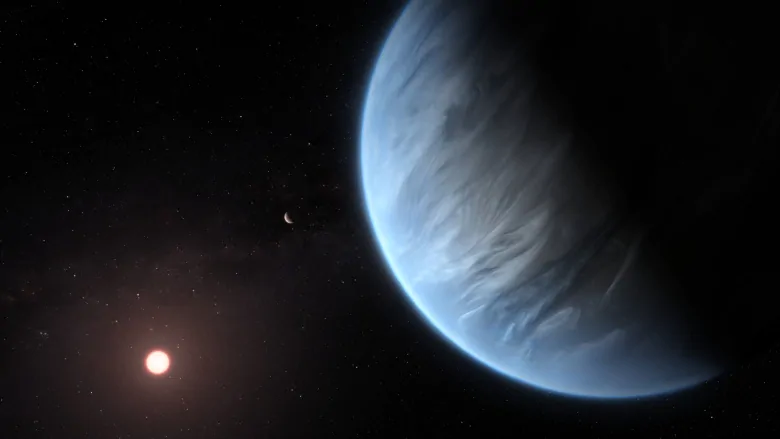New research suggests K2-18b, a “mini-Neptune” that lies roughly 125 light-years from Earth, could be potentially habitable.

New research suggests K2-18b, a “mini-Neptune” that lies roughly 125 light-years from Earth, could be potentially habitable.
Mini-Neptunes are planets less massive than Neptune, with barely any core or solid surface but with a thick hydrogen-helium atmosphere. However, there has been debate over whether these types of planets could host an environment that could be potentially habitable.
K2-18b, discovered in 2015, is part of a two-planet system, roughly 8.6 times the mass of Earth and 2.6 times the radius. It also lies within the habitable zone around its red dwarf star, a theoretical region where liquid water can exist on the surface of a planet.
The planet has been of particular interest since September 2019 when two independent research teams revealed the detection of water vapour in its atmosphere, marking the first time this had been detected on an exoplanet, a planet orbiting another star.

Though there was some excitement over the announcement, discussion arose as to whether or not K2-18b was indeed potentially habitable, with some astronomers arguing that conditions on the planet — such as its high pressure and temperature — would make this world unsuitable for life. Just because there was water vapour didn’t mean it was potentially habitable.
However, the new study published in the Astrophysical Journal Letters, suggests that, under the right conditions, K2-18b could be indeed potentiall

